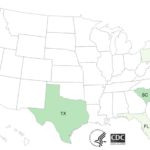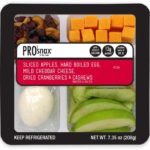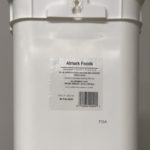The Almark Eggs Listeria outbreak has ended with 8 sick in 5 states, 5 hospitalized, and 1 death, according to the Centers for Disease Control and Prevention's latest announcement. A recall was issued for Almark Foods hard boiled eggs that had "Best If Used By" dates through March 2, 2020. These eggs are past their shelf life and shouldn't be available for sale, but some consumers may still have them in their homes and restaurants could have them in storage coolers. They should be discarded. The case count by state is: Florida (1), Maine (2), Pennsylvania (1), South Carolina (2), and Texas (2). Listeria specimens from patients were collected from April 10, 2017 to December 7, 2019. These dates are so far apart because the investigators used PulseNet to look for people sickened with … [Read more...]
Researchers at Flinders University Use Sous Vide To Remove Salmonella From Eggshells
Researchers at Flinders University in Australia have found a way to use sous vide to remove Salmonella from the surface of eggshells. The study was published in Foodborne Pathogens and Disease. Sous vide is a cooking method where food is vacuum sealed inside plastic bags and immersed in a water bath for longer periods of time than other methods. The water temperature is set to the desired final internal temperature of the food. Eggs can be contaminated with Salmonella bacteria, and in fact, several outbreaks in recent years have been linked to shell eggs. Because of this potential contamination, food safety experts advise consumers to cook eggs thoroughly to 160°F, avoid recipes that use uncooked and undercooked eggs, and to wash their hands thoroughly with soap and water after … [Read more...]
Do You Make Spaghetti Carbonara? You Need to Read This
If you make Spaghetti Carbonara, as I do, which is that traditional dish where raw eggs are beaten, then stirred into hot cooked spaghetti (to "cook" the eggs), you need to read this study published in LWT, a journal of Food Science and Technology. This method of cooking does not kill all bacteria that may be present in the eggs. The only thermal processing, or kill step, is heat transfer from the hot pasta, which isn't sufficient to destroy all of the pathogens. Scientists inoculated egg yolks with a pool of Salmonella reaching 8.8 log10 CFU/g. The contaminated egg yolks were added to the cooked spaghetti, after the pot was taken off the heat. Right after the pasta was cooked and drained, it was 86°C (186°F), which is quite hot and well above the 165°F the eggs need to reach to … [Read more...]













